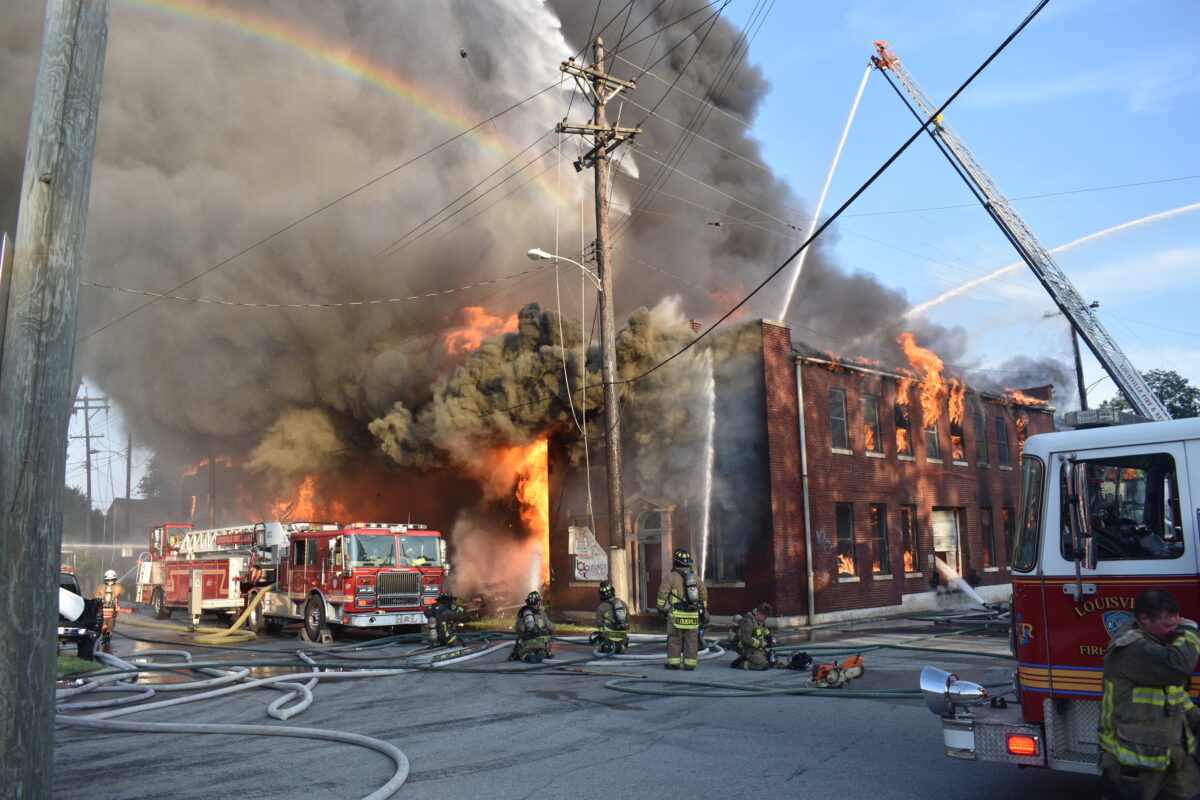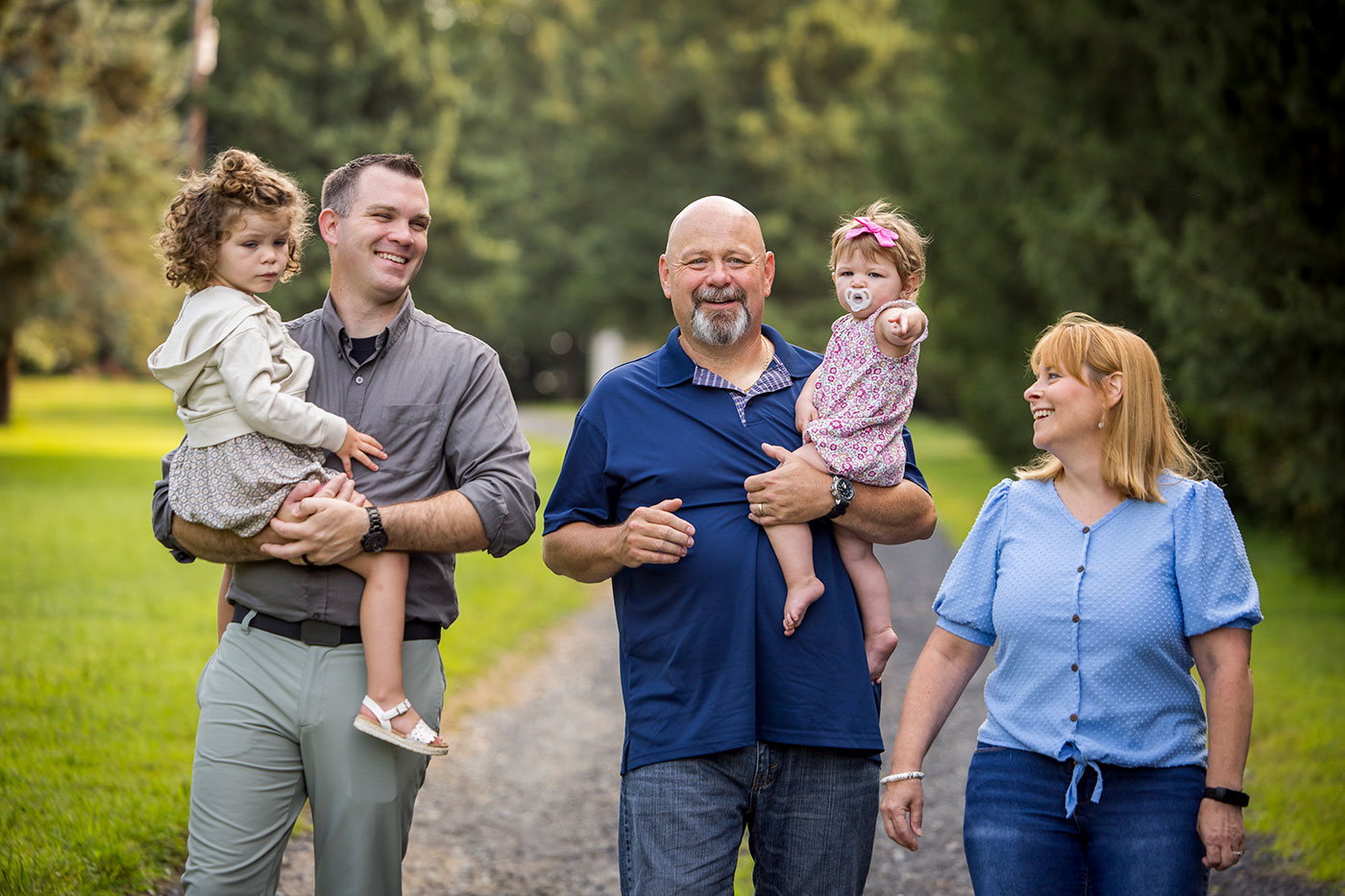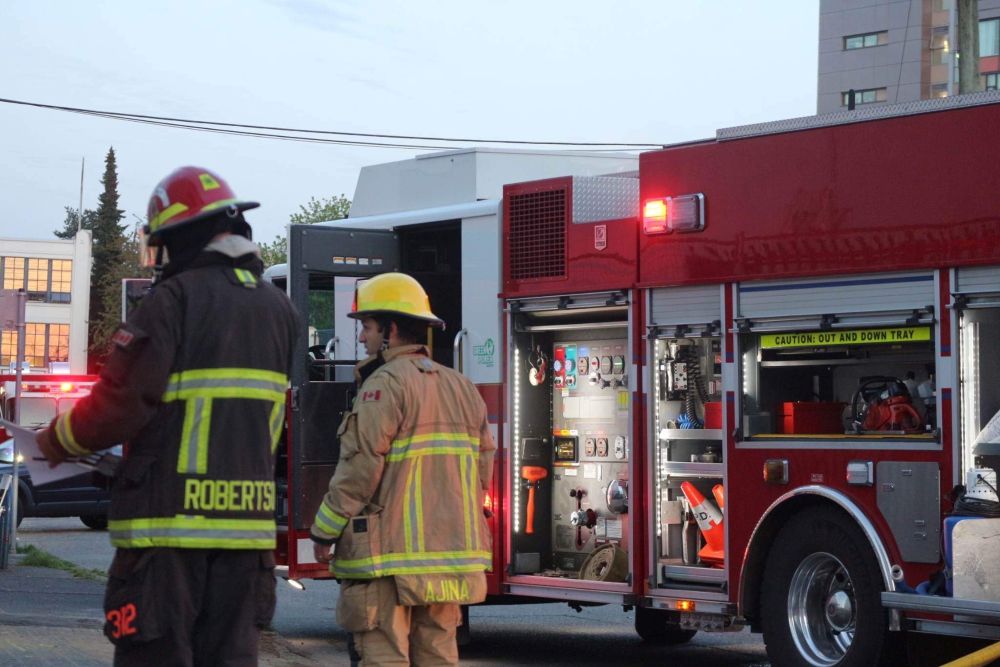Greensboro, NC Local 947 has joined the ranks of IAFF Locals expanding their reach to include members who are not fire fighters or emergency medical workers.
This year, not only have they welcomed 20 new fire fighters, but they have also added 10 others who hold positions including fire protection specialists, an administrative assistant, a safety educator, and a Human Relations Business Partner.
“The department employs personnel who are vital to our fire prevention, education, and community safety efforts. They all deserve to have their voices heard when it comes to conditions of their employment, wages, and benefits,” said Local 947 President Dave Coker.
While some Locals have included nontraditional members for decades, a growing number of IAFF affiliates are organizing all fire department employees and related departments to improve morale and amplify their voice in the community and at the bargaining table.
“This union was built by fire fighters, but it was never meant to stop there,” General President Edward Kelly said. “If you work in the fire service and you show up every day to protect your community, you deserve a union that will fight for you. That’s what the IAFF does.”
This union was built by fire fighters, but it was never meant to stop there. If you work in the fire service and you show up every day to protect your community, you deserve a union that will fight for you. That’s what the IAFF does.
General President Edward Kelly
Local 947 leadership began talking about expanding the membership to include fire department personnel who are not fire fighters or emergency medical workers a couple of years ago after the city announced building inspectors would be brought under the department’s umbrella.
In late 2024, Local 947 members voted to change their by-laws to include additional fire department employees who are not fire fighters or emergency medical workers.
“We are stronger if we speak with one voice. And that’s important in a state that does not recognize collective bargaining,” Coker said.
Among the 28 employees eligible to become members, 10 have joined so far.
“Every time we widen the circle of representation, we get stronger,” Kelly said. “We’ve always believed that solidarity makes us more powerful, and Greensboro’s decision to stand together – even without collective bargaining rights – is how we protect and advance the fire service.”
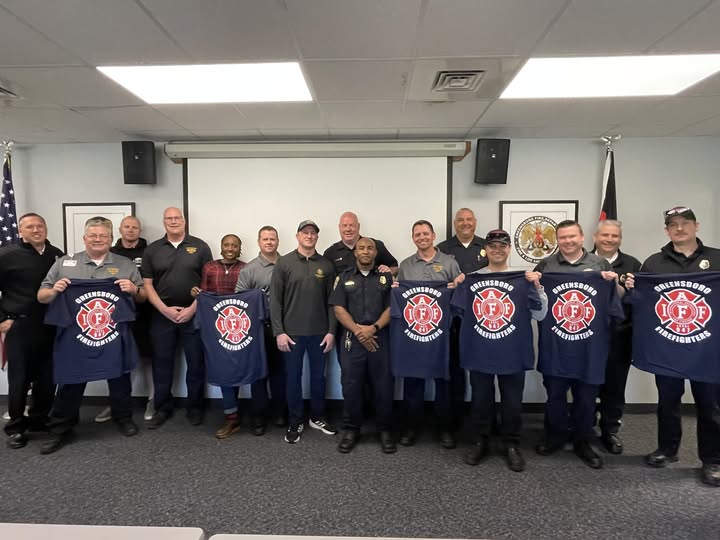

Orillia, ON Local 1100
Local 1100 is a smaller Local with just 46 members. Four are dispatchers. Orillia’s negotiating team bargains on behalf of all members, ensuring each one receives fair wages and the job protections they need.
So, when the Orillia City Council moved to farm out the dispatch positions in 2023 to prepare for a transition into the new NextGen 911 system (a digital platform that allows callers to provide text, photos, and video to dispatchers in addition to voice), Local 1100 stepped in to save the jobs of those four dispatchers.
“Our contract contains a clear ‘no contracting out’ policy, so we grieved it immediately,” Orillia Local 1100 President Brett Eeles said.
Leona McAusland is an 18-year veteran dispatcher and serves as Local 1100 secretary-treasurer, and says the IAFF has always been there “for us day or night, anytime we have a question or an issue.”
“When the city threatened our jobs, we really needed help and they came through for us,” McAusland said. “It just so happened when word came that the city was looking to cut our jobs, several of us were together at a provincial meeting. Our district vice president, provincial association, and Local were able to organize a response quickly.”
McAusland emphasized that this issue was especially important to three of the dispatchers because they are nearing retirement age. Losing their jobs would have meant losing full pensions.
Delray Beach, FL Local 1842
Representing members who aren’t fire fighters or emergency medical personnel can be tricky.
In Florida, for example, the Public Employees Relations Commission’s rules state that unions must prove that members represent or show a “community of interest.” In this context, all members, regardless of job title or occupation, must share similar job concerns and experiences.
Delray Beach Local 1842 was able to bring lifeguards, or ocean rescue personnel, into the bargaining unit 20 years ago because these members are also EMTs.
“While they do not rush into fires like fire fighters do, they do perform life-saving medical response as part of their everyday job duties,” Local 1842 President Craig Mahoney said. “As a union, it is our job to make sure they not only have adequate wages and benefits, but that they also have the resources they need to safely do the job.”
While they do not rush into fires like fire fighters do, they do perform life-saving medical response as part of their everyday job duties. As a union, it is our job to make sure they not only have adequate wages and benefits, but that they also have the resources they need to safely do the job.”
Local 1842 President Craig Mahoney
Ocean rescue personnel are scattered down the beach at regular intervals to ensure they are close enough to the water to respond to any potential drownings in under two minutes.
“Our job is to ensure everyone is safe on the beach. Drowning prevention is a big part of our job, but we have seen it all – from capsized boats to lost divers,” Local 1842 member Bryce Clough, a 17-year veteran, said.
Clough said they also monitor the beach for unsafe activities. For example, they make sure surfers do not get too close to boats and they keep track of when sharks might be getting too close to shore, making it unsafe for swimmers.
A Local 1842 district vice president since 2010, Clough said the union also understands the needs of its ocean rescue members.
“President Mahoney always has our backs as we work hard to maintain good shift schedules and a budget for protective gear,” he said. “And ever since we became part of the union in the early 2000s, we have seen our wages and benefits grow and grow. It’s the value of being part of Local 1842.”
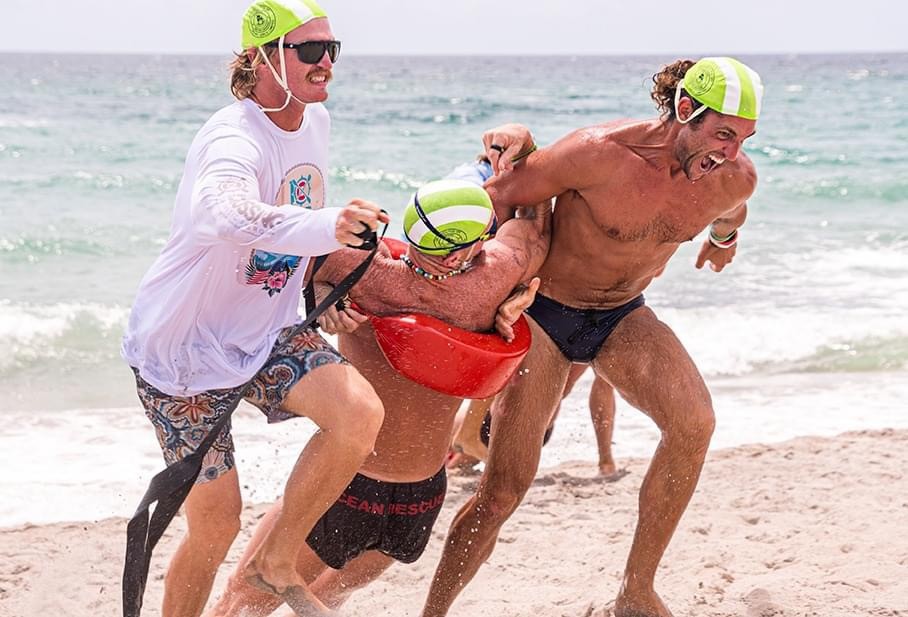
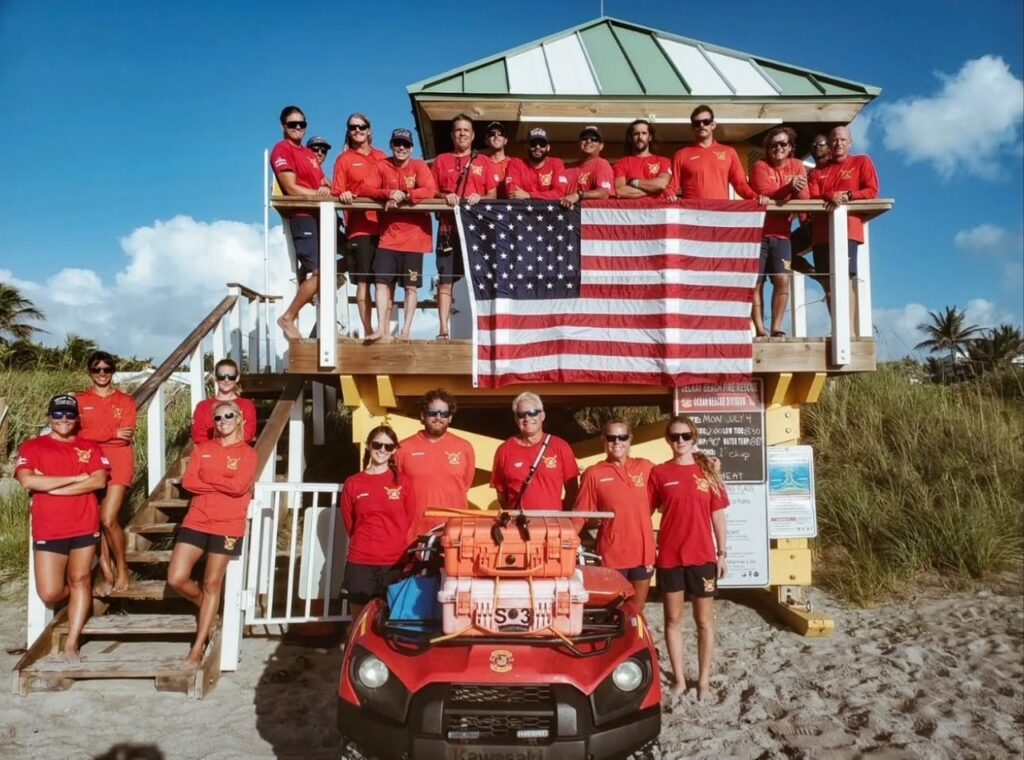
Los Angeles County Local 1014
Local 1014 represents an array of different fire and emergency response professionals – including fire fighters, emergency medical workers, dispatchers, pilots and health HazMat personnel.
“That’s more than 3,200 members in total,” Local 1014 President Dave Gillotte said. “Any issue impacting any of those members is our issue. Every member is a priority.”
Cerena Lewis is a 10-year veteran dispatcher for the County of Los Angeles Fire Department and proud member of Local 1014. She is also trained as a peer support counselor.
“I love helping people, but this job is not for everyone. It is not uncommon for us to take in more than 100 calls during a shift from people who need help getting through what is the worst day of their lives,” Lewis said. “Some of those calls are tough and it’s hard not to take that with you.”
Lewis and her colleagues are categorized as office workers and are not eligible for workers’ compensation for behavioral health issues like post-traumatic stress. Local 1014 has been working with the state legislators for several years to fix this issue.
“My Local has been fighting hard for us and I’m proud to fight with them,” said Lewis, who has testified before legislative committees.
Legislation expanding workers’ comp benefits for office workers has received some support in the past, but has yet to pass.
“One of the hardest things for us is that we don’t get closure. I remember a call we received from someone who had gone out with his friend in the middle of the desert to shoot guns. One of them accidentally shot himself and the other called for help. He said his friend was still breathing but he could see his brain. We got him airlifted, but I never knew what happened after that.”
Milton Molina is another Local 1014 member. He serves in the Health and Hazardous Materials Division, which was added to the department after an accident at a Grow Group, a large producer of glass that released dangerous amounts of chlorine into the air. Residents had to be evacuated, and clean-up efforts were extensive.
“We work hard to do our part to keep Los Angeles County safe. We inspect all businesses that produce hazardous materials to make sure it is being disposed of properly and not in danger of being released into the air or the ground,” Molina said. “It can be even more involved when we are called out to make damage assessment inspections after large events like the Eaton and Malibu wildfires.”
The union helps division employees get the tools they need, such as protective gear. The Local also works to ensure they receive fair compensation and benefits – just like their fire fighter and EMS counterparts.
“Being part of Local 1014 means we get a seat at the table,” Molina said. “It is important that we have not just adequate compensation and benefits, but also the proper resources to do the job. We have a good contract, but we are glad that we also have access to the Local 1014 health plan as it is better than what the county can offer.”
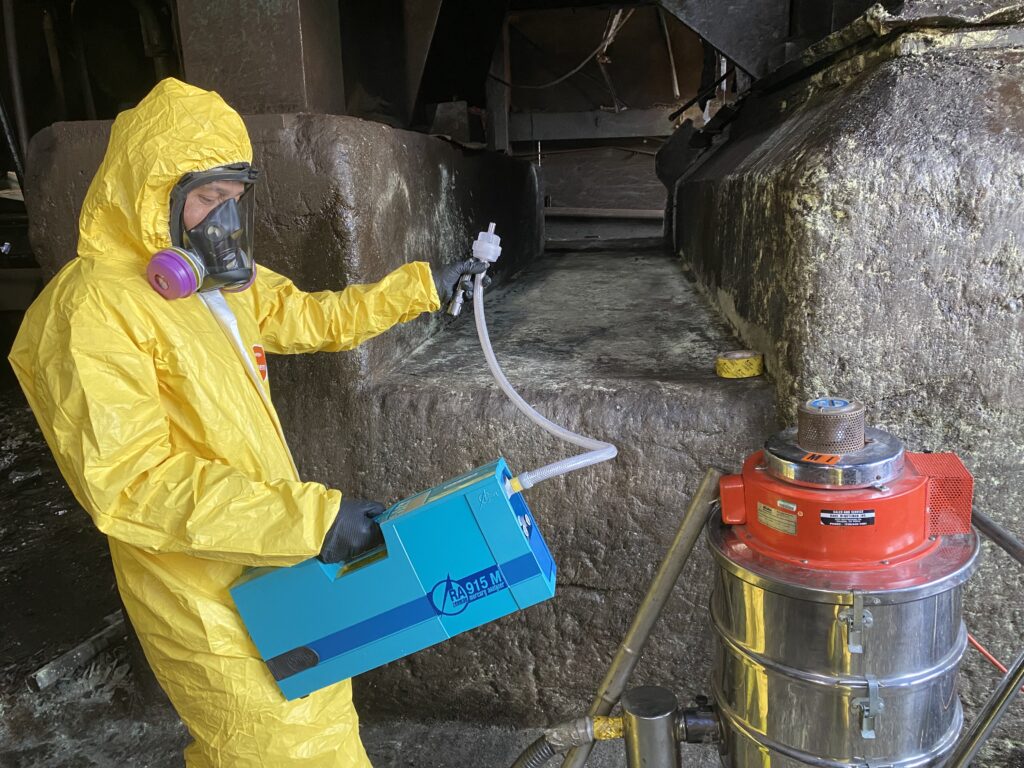
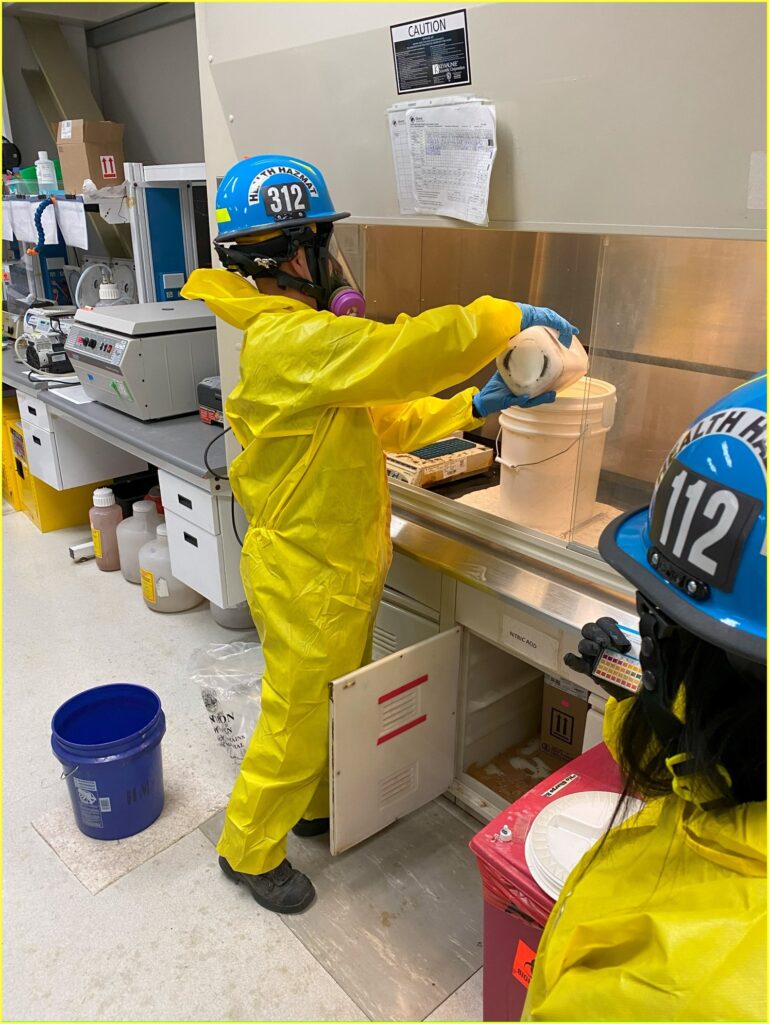
Louisville, KY Local 54
Local 54 represents everyone from fire fighters and emergency medical technicians to arson bureau investigators, dispatchers, and some department office personnel.
Local 54 President Jeff Taylor said the executive board is proud to fight on behalf of all of its members and ensure specific needs, including dedicated budgets for turnout gear and tool replacements for mechanics, are addressed.
“[We are] much more effective when we stand together and negotiate together,” Taylor said. “We bargain for the entire bargaining unit all at once; we never separate groups out. When we negotiate wage increases, everyone gets a raise, not just a few.”
Arson investigators fall under the fire department, but their job duties and occupational concerns are quite different.
“We investigate all suspected incidents of arson for Louisville and seven other fire departments in Jefferson County,” said Geoff McNulty, a seven-year veteran of the bureau and Local 54’s 40-hour representative.
The 40-hour members include 10 arson investigators and a secretary.
“Just like police investigators, we make arrests and follow the case through the court system. It can be dangerous work, so our protective gear includes body armor and a gun,” he said.
Local 54 cannot offer legal representation if the gun goes off in the line of duty. To close the gap on that issue, the Local pays for those members to have a Fraternal Order of Police membership because the FOP can offer that service.
McNulty said many issues within the Local are universal.
“We need fair compensation, benefits, and protections under workers’ compensation. Our union fights for all of us on those issues,” McNulty said. “When they get a raise or improvements in these areas, we all do.”


Ottawa, ON Local 162
Local 162 represents the interests of more than 1,000 members, including fire fighters, fire prevention personnel, and dispatchers.
“As we negotiate contracts, we listen to the concerns of all our members before we go to the table. Our goal is to get something for everyone,” Local 162 President David André said. “I’m particularly proud that we were able to get communication supervisors reclassified as captains. And that got them a 10 percent raise.”
Katie Clattenburg is an 18-year veteran dispatcher and serves on the Local 162 executive board, assisting with events and serving as a liaison with dignitaries.
Clattenburg says Local 162 addresses issues big and small. She cites changes to a more predictable overtime schedule as one recent example.
“Our previous schedule had us working a lot of weekends,” Clattenburg said. “That was difficult for all of us, so Local 162 made it a priority to get that changed and they did.”
Today, dispatchers work a 28-day cycle that includes a mix of 10-hour day shifts and 14-hour night shifts with rest in between. The shifts are scheduled to ensure fewer weekends are worked. In addition, overtime can now be scheduled, so it’s more predictable than in the past.
The story in Ottawa is just one example of how IAFF Locals are adapting to meet the evolving needs of their members – even if these professionals may wear different uniforms.
“‘Strength through united action’ isn’t just a phrase in our Constitution and By-Laws – it’s the foundation of everything we do,” Kelly said. “It’s what built our union and what continues to guide our IAFF today.”
